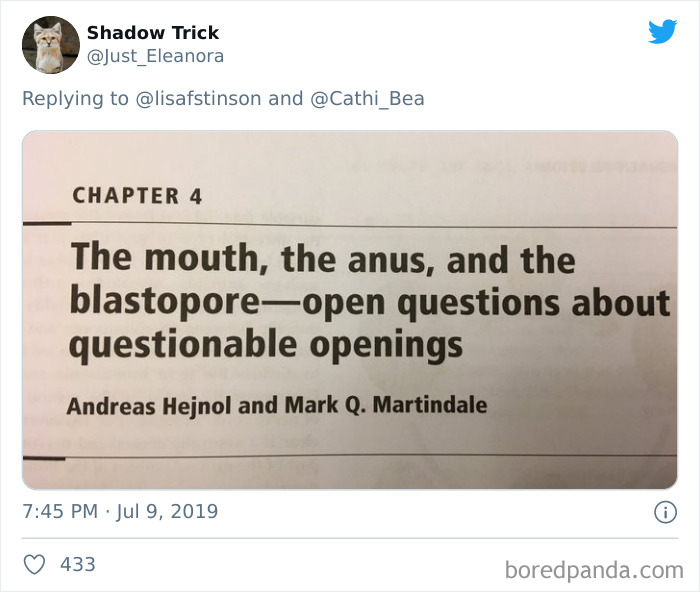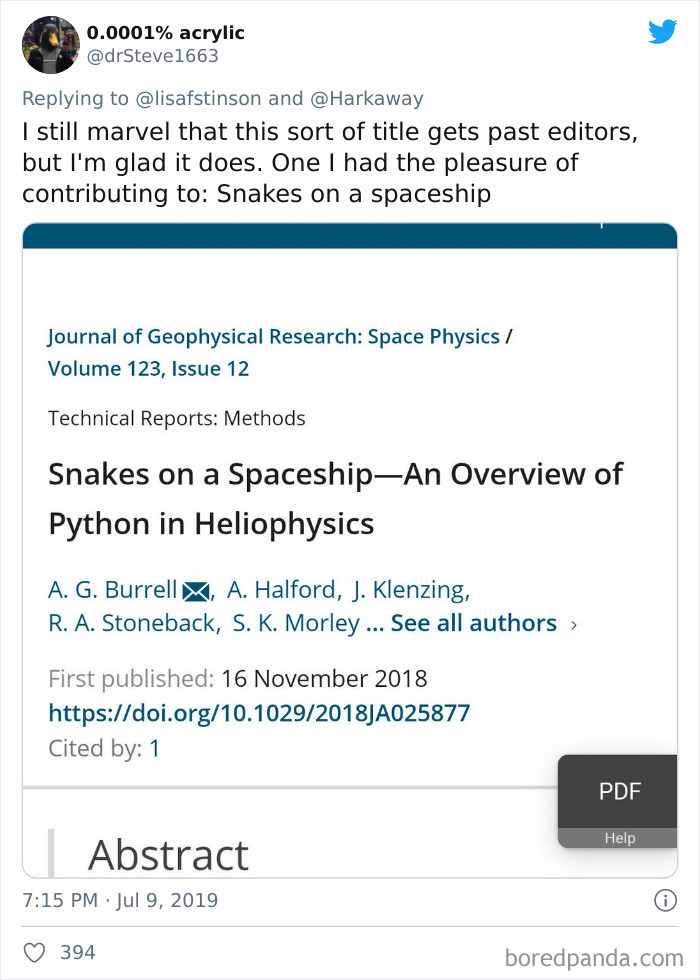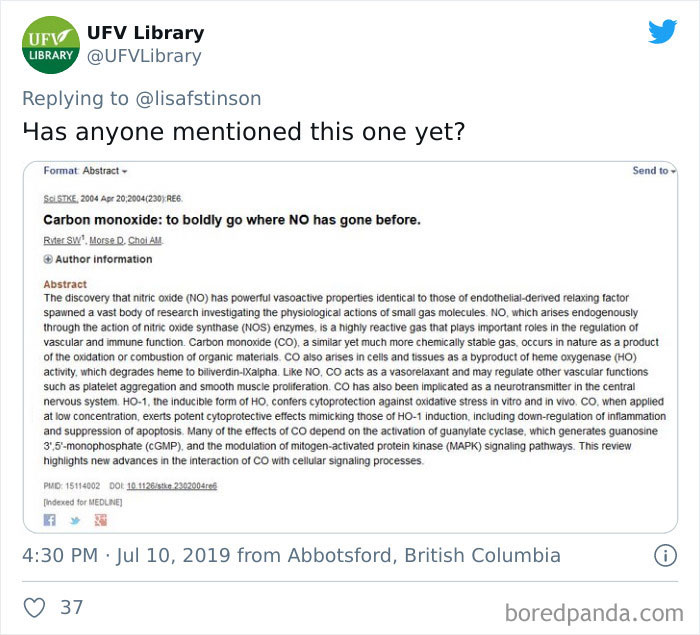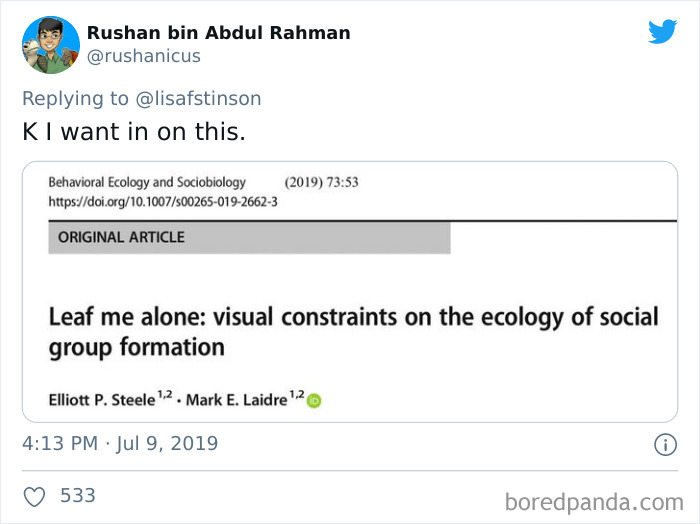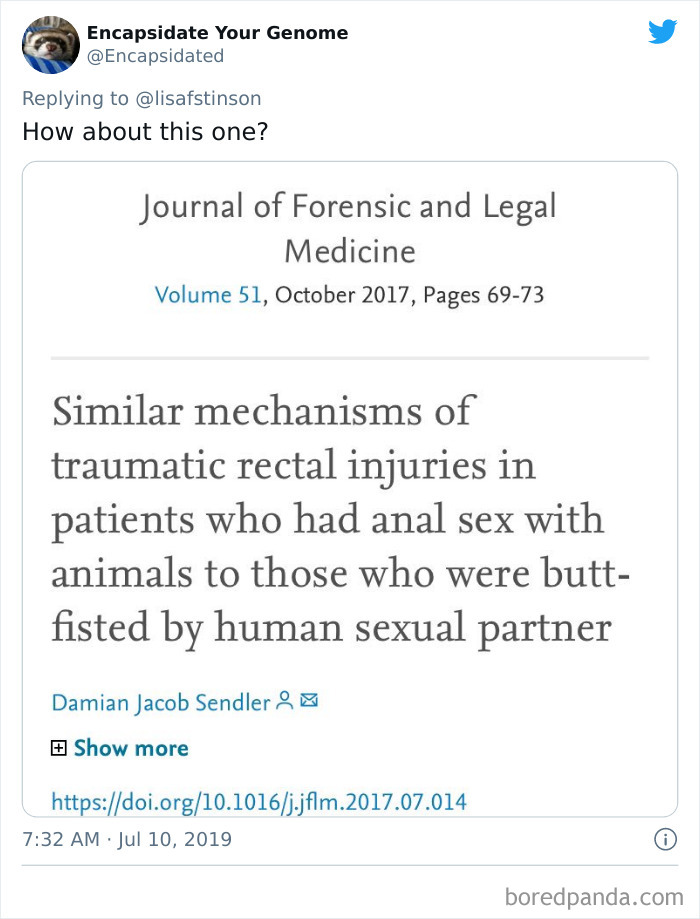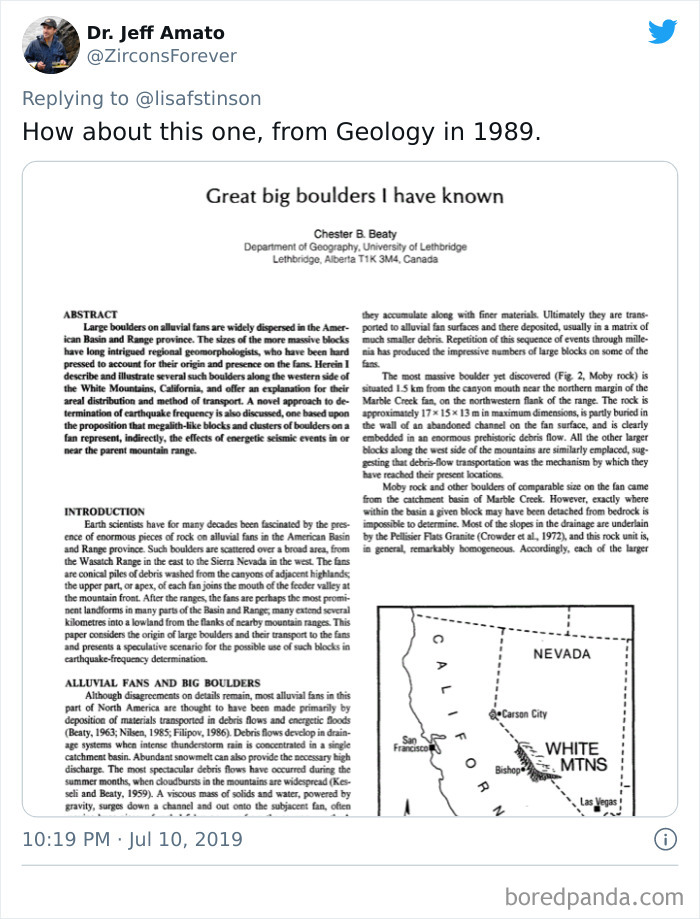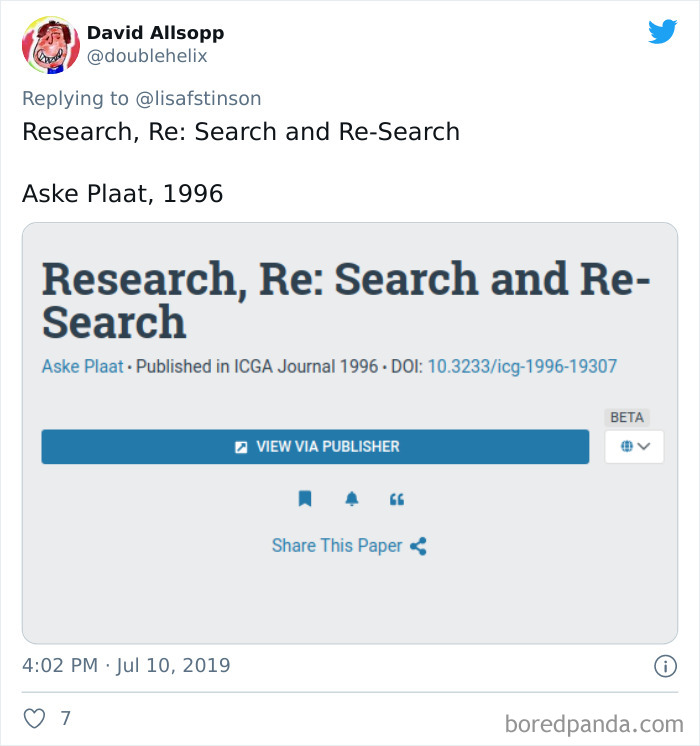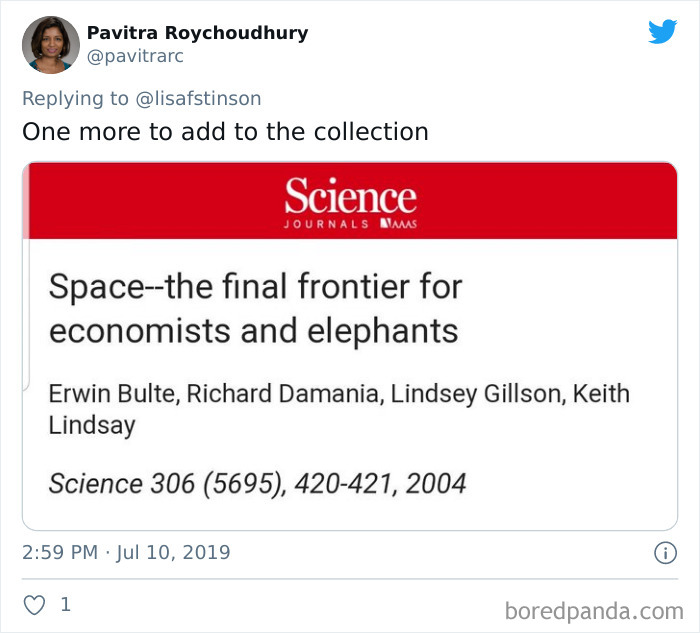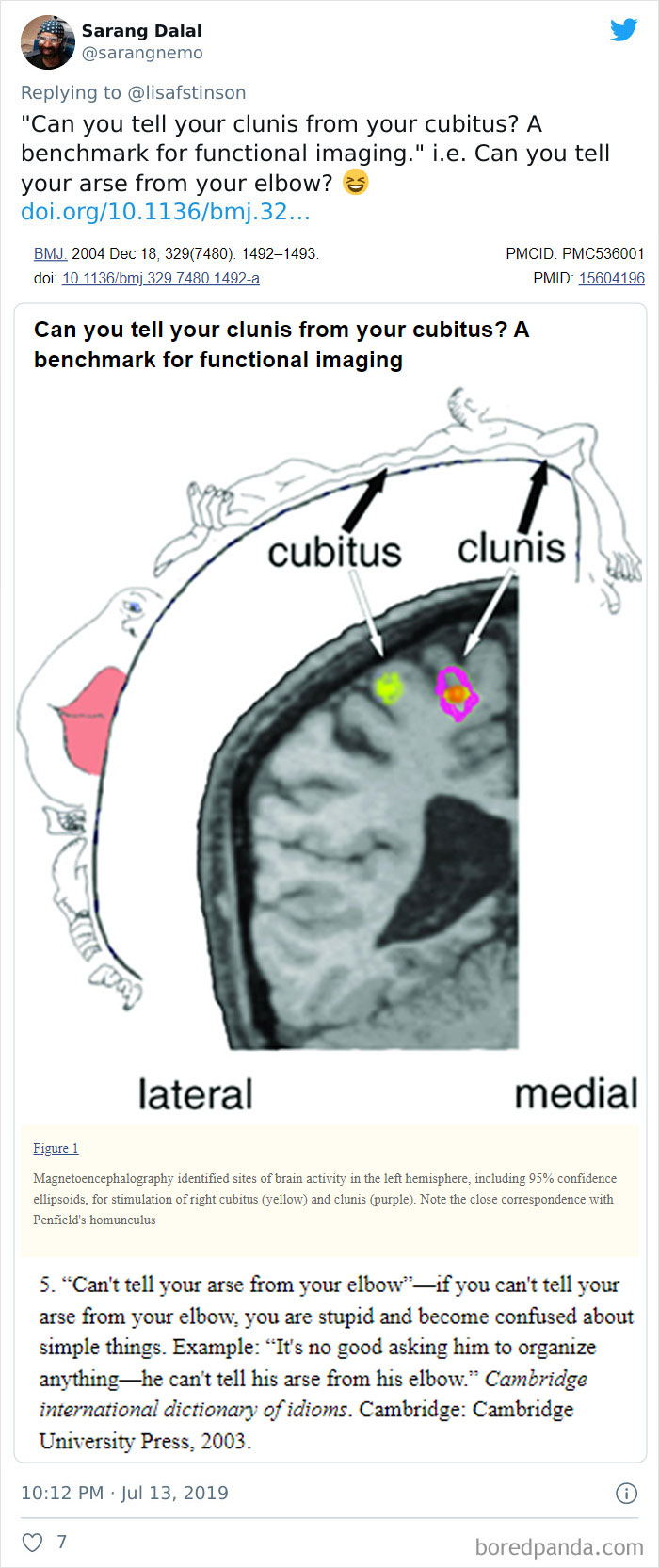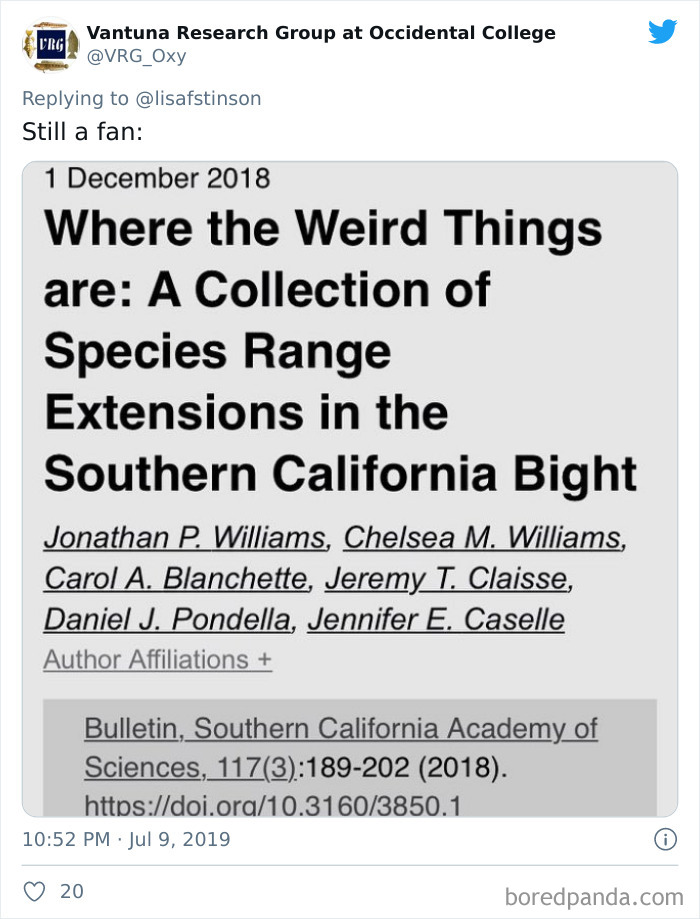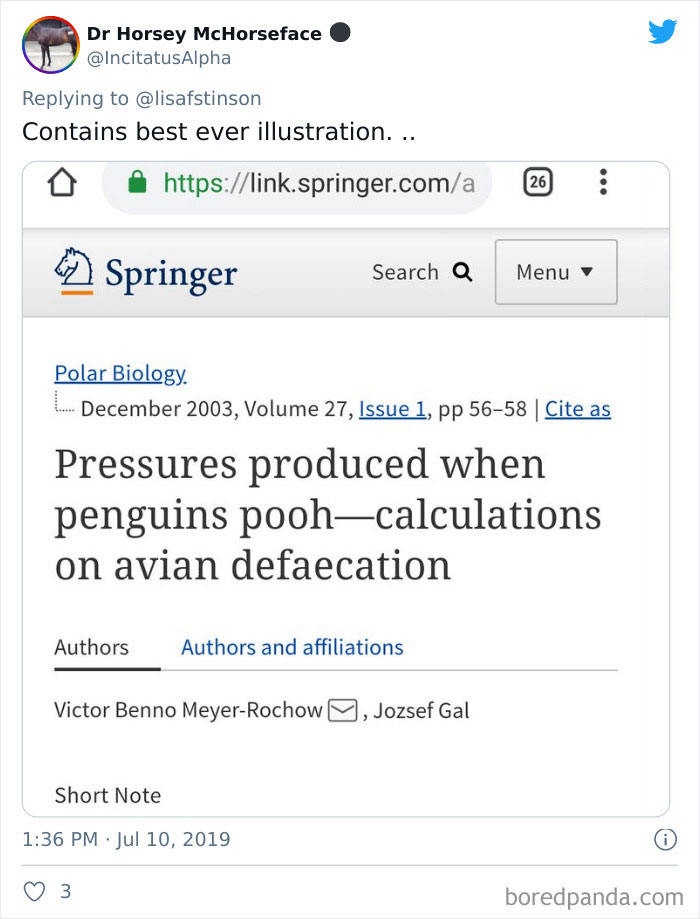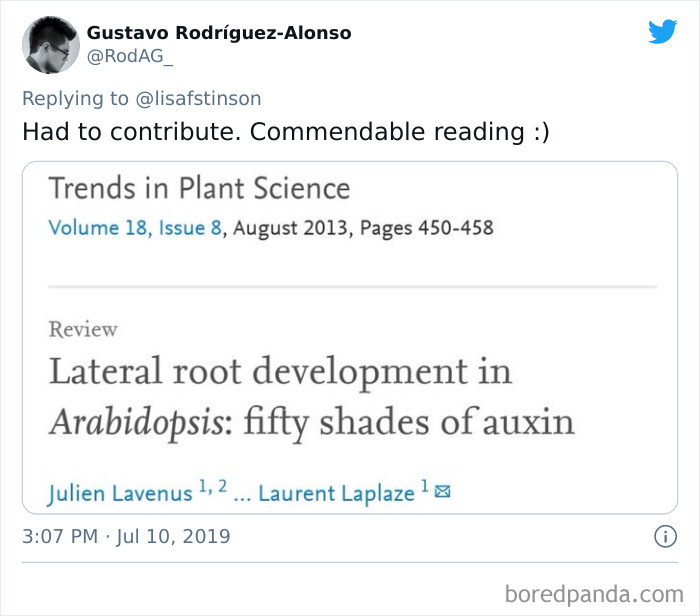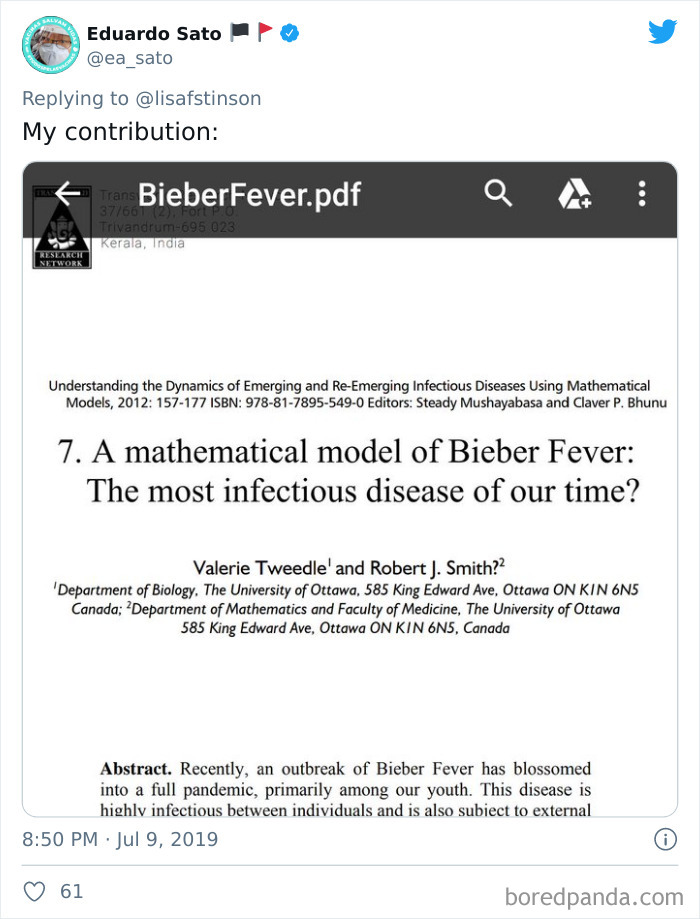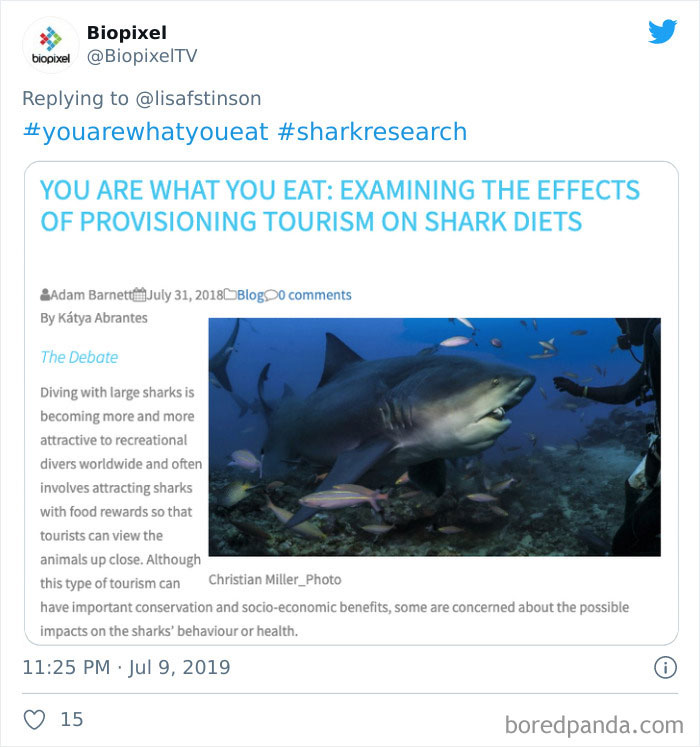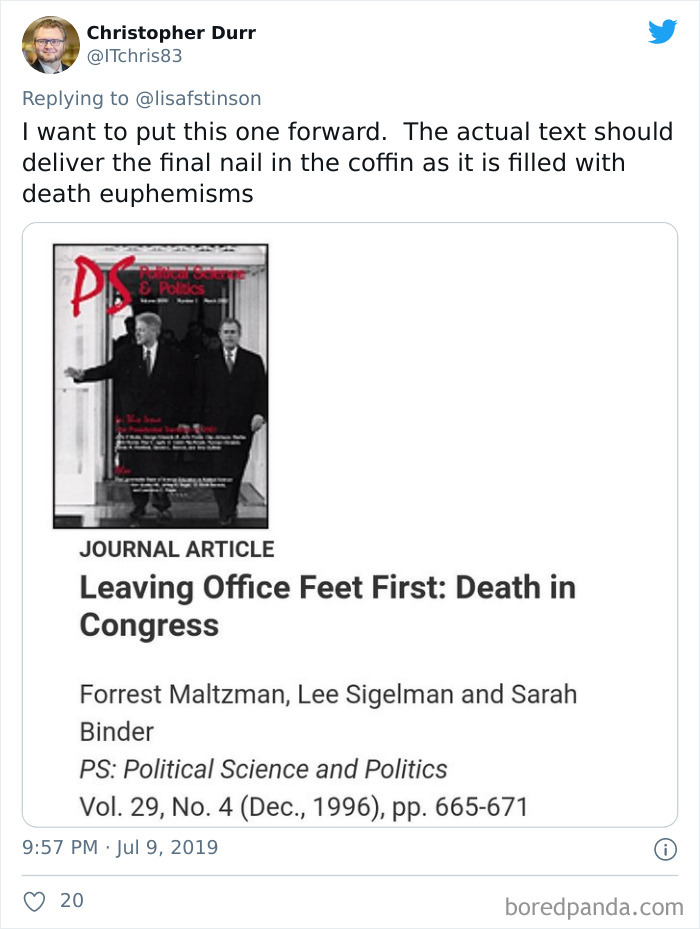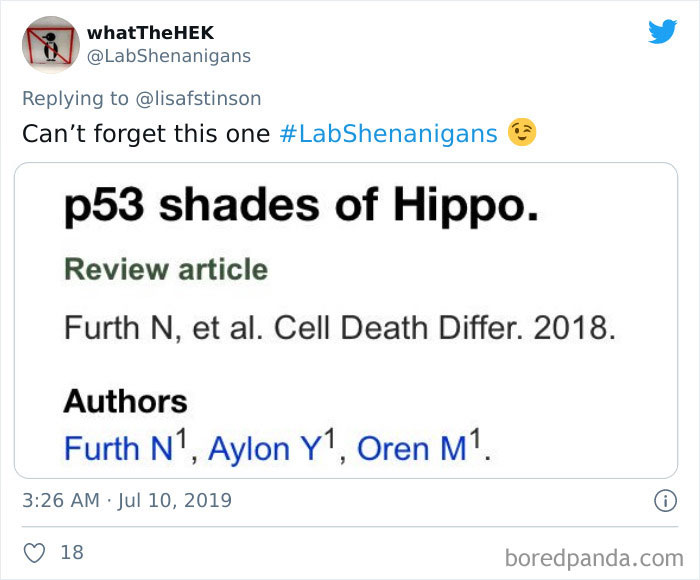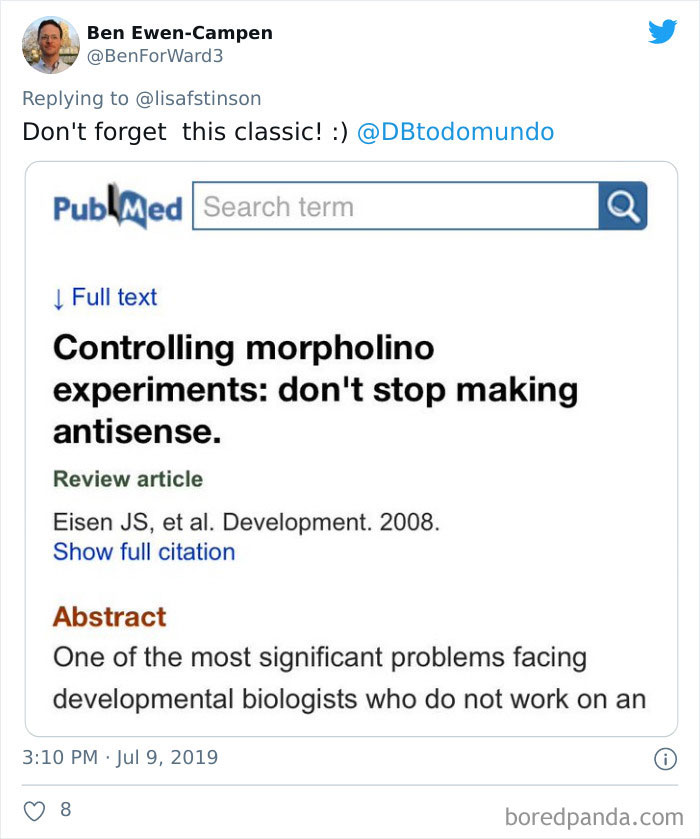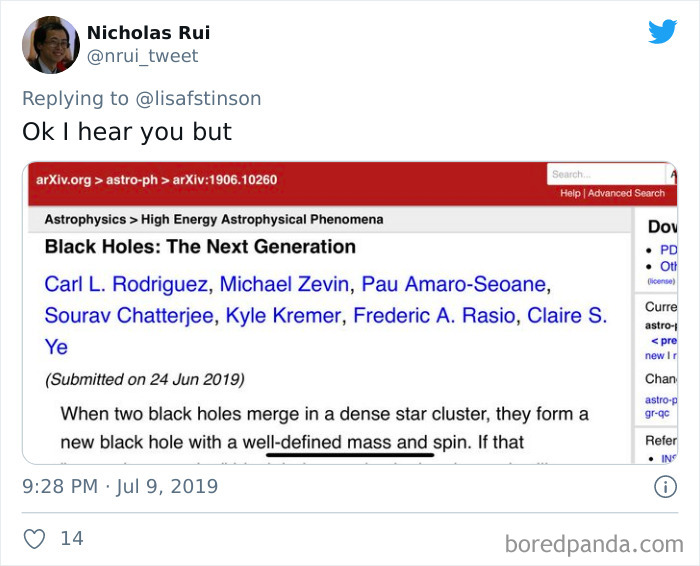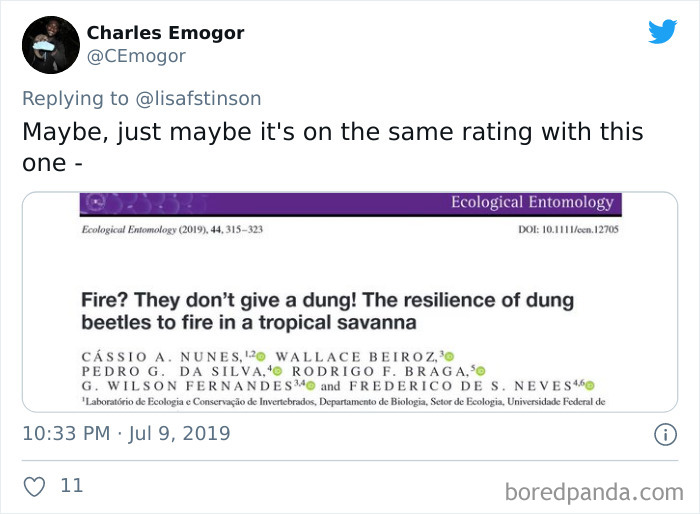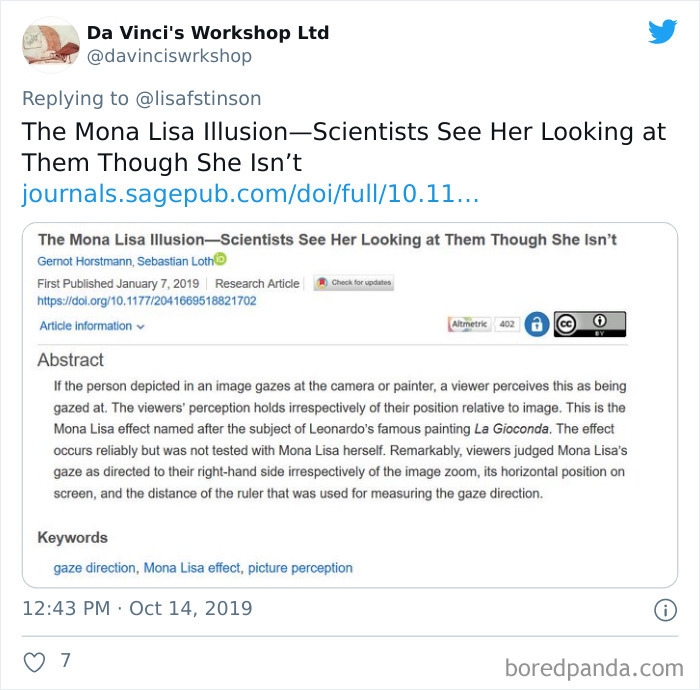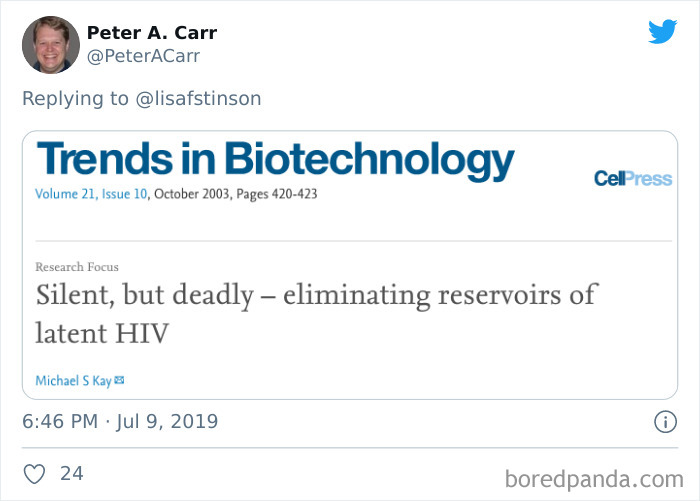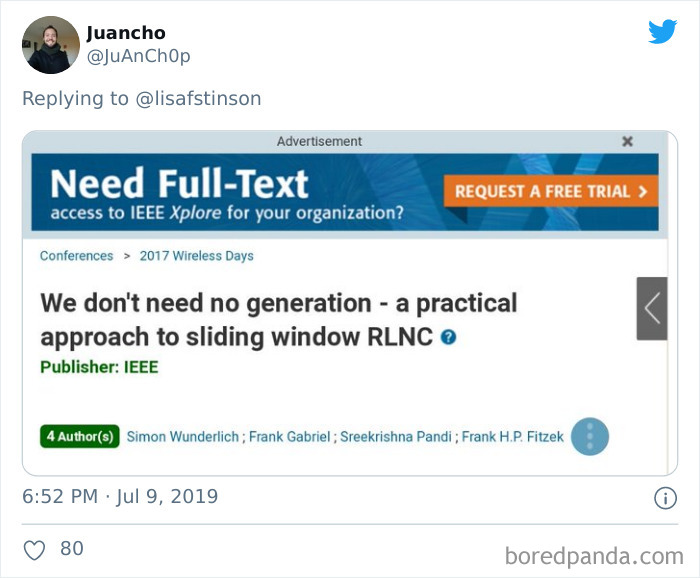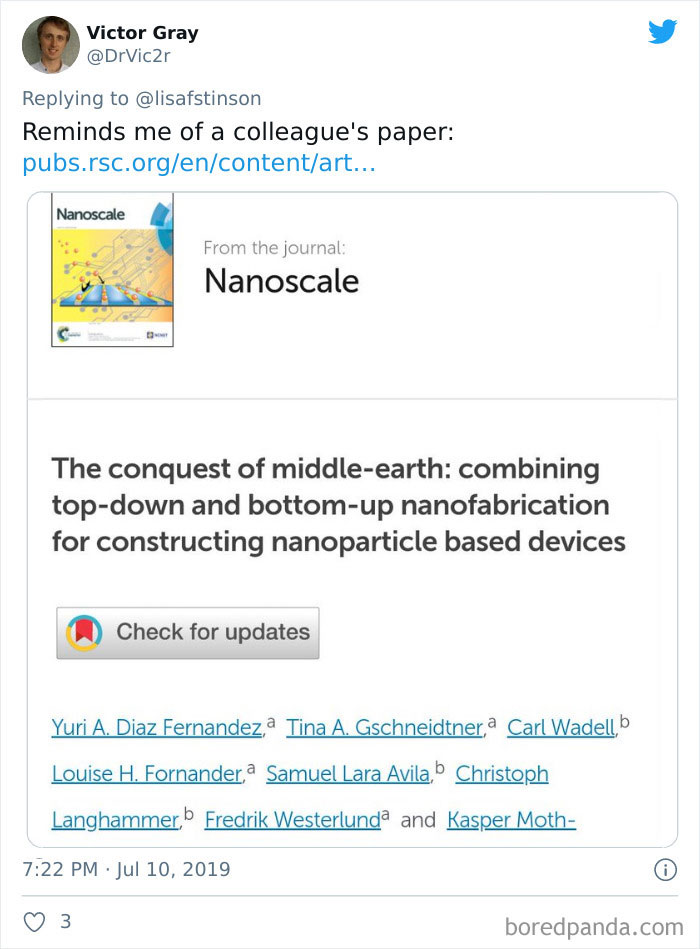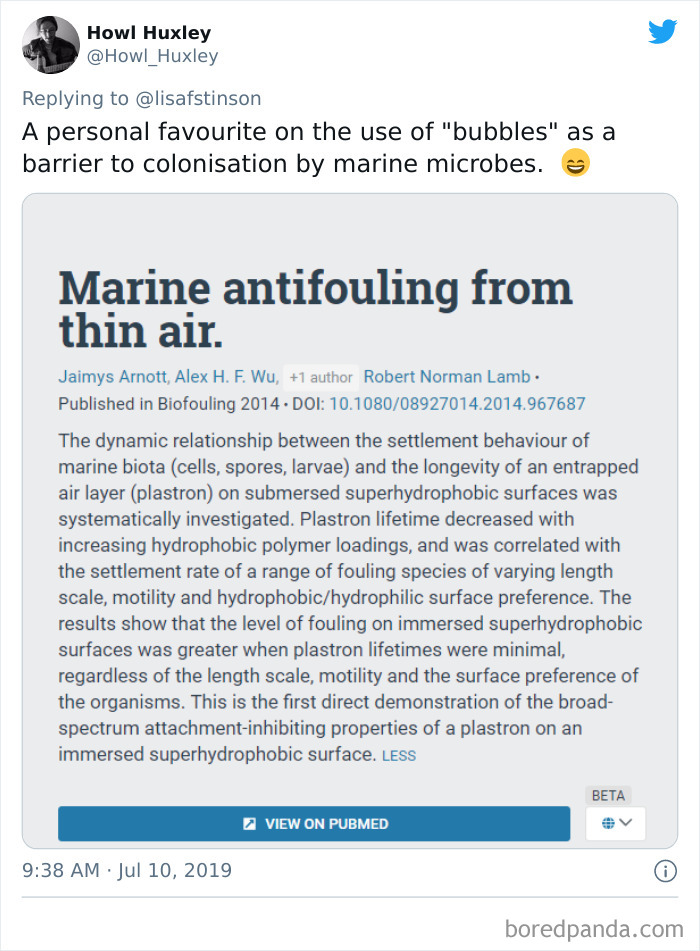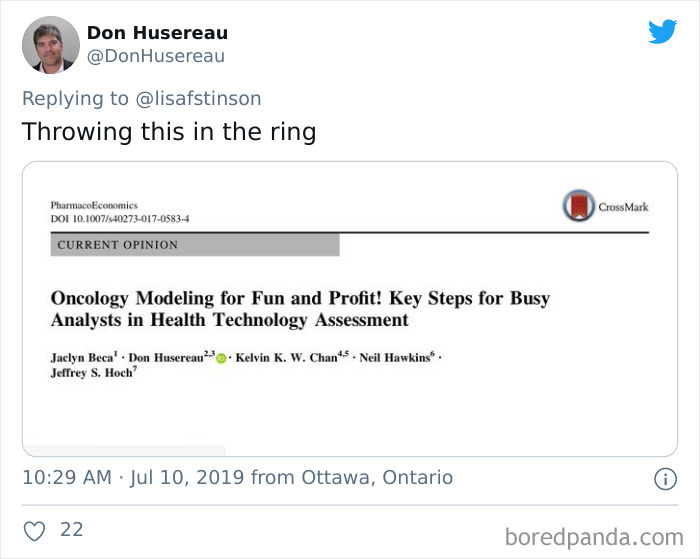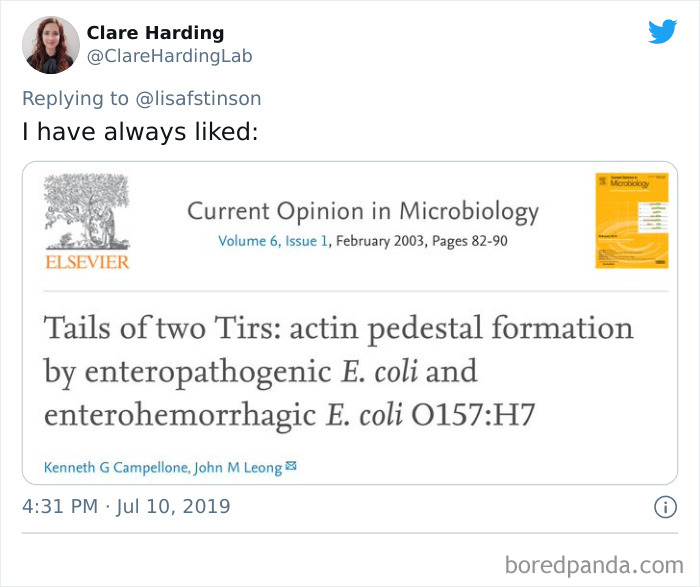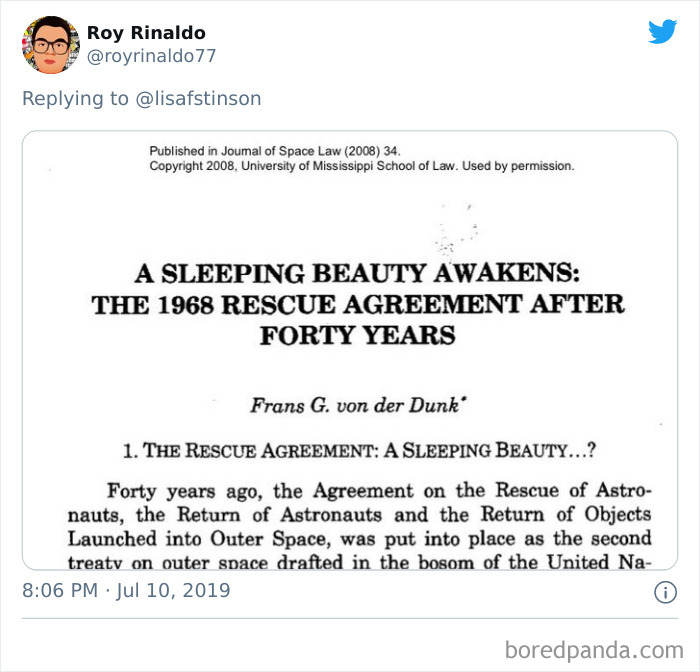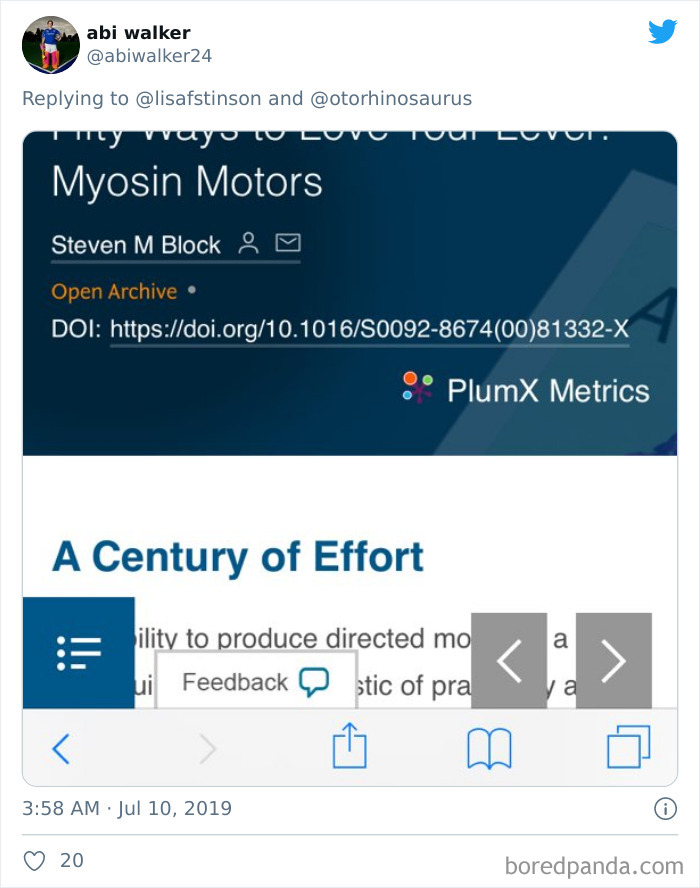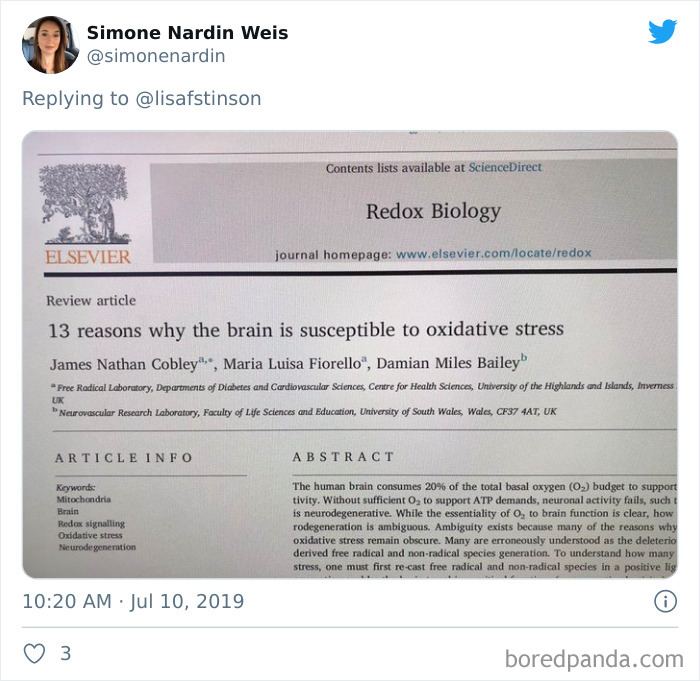
30 Paper Titles From Scientists With A Sense Of Humor, As Shared On This Twitter Thread
Forget movies that portray scientists as dry nerds. Their sense of humor, among many other attributes, is even better than those writers who paint such a terrible picture of them in scripts. Actually, scientists can't resist dropping a pun here and there when they're writing serious papers.
One viral Twitter thread has academics and researchers sharing the best paper titles they've come across, and no wonder it's so popular. From the classic "Medical marijuana: Can't we all just get a bong?" to the contemporary "miR miR on the wall, who's the most malignant medulloblastoma miR of them all?", these headlines are so good, their clickthrough rate could rival that of fake clickbait articles. The only difference is these have substance.
Continue scrolling and check out some of the best submissions on the thread!

This post may include affiliate links.
Kim Madden, an orthopedics researcher at The Research Institute of St. Joe's Hamilton and Assistant Professor at McMaster University, is one of the people who contributed to the thread. Her addition—the before-mentioned "Medical marijuana: Can't we all just get a bong?"
"I was doing a systematic review on medicinal cannabis at the time and this study came up in our systematic search strategy," Madden told Bored Panda.
She said that most scientific journal titles are meant to be descriptive, so it makes sense that many papers don't have humorous titles. "This probably comes from a desire to be clear about what the paper contains, but can also contain technical language that is not known outside the author's narrow field," Madden explained. "However, there are a number of authors that use humorous titles or study acronyms to grab readers' attention. This can be a good tactic for knowledge translation to get people to read your paper and maybe cite it too, or to appeal to a broader audience."
This must be a miR coincidence that I just saw an article on this subject yesterday
Google "scientific paper titles" and you'll get credible sources saying that "the title will be read by many people." According to them, only a few will read the entire paper, therefore all words in the title should be chosen with care. "Too short a title is not helpful to the potential reader. However, too long a title can sometimes be even less meaningful," says the staff at the University of California Irvine.
Of course, search engines, databases, or journal websites often use words found in a paper's title, abstract, and list of keywords to decide whether and when to display it to potential readers. So you can definitely argue that these 3 elements are very important when publishing your work.
Madden believes that scientific articles need to have a descriptive title so that knowledge users can find the study. "In fact, reporting guidelines for many study designs in medicine state that particular things like the study design must be stated in the title. However, I also think it’s nice to find that balance where the study is fun to read and appeals to a wider audience for better knowledge uptake. Plus, thinking up a humorous study title is fun," she said.
Some authors take this fun to extreme lengths to make their work more appealing. Take Jaroslav Hašek, the man who gave us The Good Soldier Švejk, for example. As editor of the magazine Svet zvírat (the world of animals), he created brand-new, imaginary animals and occasionally plagiarized articles directly from German papers.
But these creative titles, however, are proof that your paper can be both captivating and legit at the same time. And it can popularize science on a whole new level - Twitter!
I always thought the weird American things get stored in Florida, the more you know.
Shouldn’t it be spelled “poo”? Did they get approval on that spelling from Winnie?
I would love to know how many readers on Bored Panda understand endonasal dacryocystorhinostomy. I cannot even pronounce it.
Bieber Fever is definitely NOT the most infectious disease of our time
WTH is aplastic distal vagina?? WTH is oral conception?? What damn joke is this????
I skimmed over Perovskites, my inner fat kid read "skittles" and I got excited for a second. OMG

 Dark Mode
Dark Mode 

 No fees, cancel anytime
No fees, cancel anytime 


